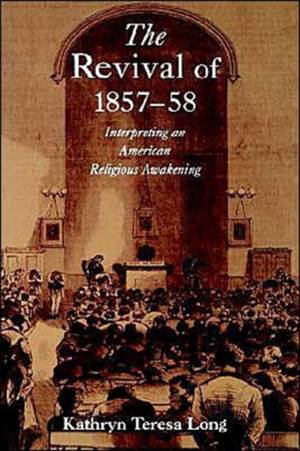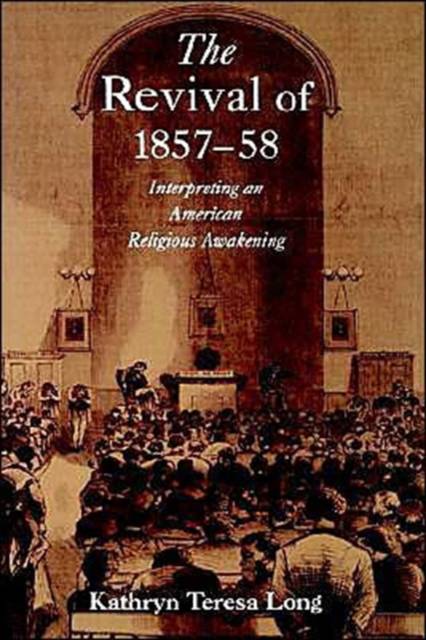
- Retrait gratuit dans votre magasin Club
- 7.000.000 titres dans notre catalogue
- Payer en toute sécurité
- Toujours un magasin près de chez vous
- Retrait gratuit dans votre magasin Club
- 7.000.0000 titres dans notre catalogue
- Payer en toute sécurité
- Toujours un magasin près de chez vous
356,45 €
+ 712 points
Description
This book provides a fresh, in-depth examination of the Revival of 1857-58, a widespread religious awakening most famous for urban prayer meetings in major metropolitan centers across the United States. Often mentioned in religious history texts and articles but overshadowed by scholarly attention to the first and second "Great Awakenings," the revival has lacked a critical, book-length analysis. This study will help to fill this gap and to place the event within the context of Protestant revival traditions in America. The Revival of 1857-58 was a multifaceted religious movement that Long suggests may have been the closest thing to a truly national revival in American history. The awakening marked the coming together of formalist and populist evangelical groups, particularly in urban areas, and helped to create the beginnings of a transdenominational religious identity among middle-class American evangelicals. Long explores the revival from various angles, emphasizing the importance of historiography and examining the way Calvinist clergy and the editors of the daily press canonized particular versions of the revival story, most notably its role in the history of great awakenings and its character as a masculine "businessmen's revival." She gives attention to grassroots perspectives on the awakening and also pursues wider social and cultural questions, including whether the revival actually affected evangelical involvement in social reform. The book combines insights from contemporary scholarship concerning revivals, women's history, and nineteenth-century mass print with extensive primary source research. The result is a clearly written study that blends careful description with nuanced analysis.
Spécifications
Parties prenantes
- Auteur(s) :
- Editeur:
Contenu
- Nombre de pages :
- 272
- Langue:
- Anglais
- Collection :
Caractéristiques
- EAN:
- 9780195112931
- Date de parution :
- 02-07-98
- Format:
- Livre relié
- Format numérique:
- Genaaid
- Dimensions :
- 152 mm x 229 mm
- Poids :
- 576 g

Les avis
Nous publions uniquement les avis qui respectent les conditions requises. Consultez nos conditions pour les avis.






